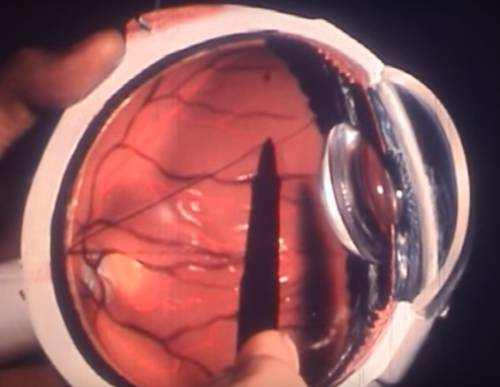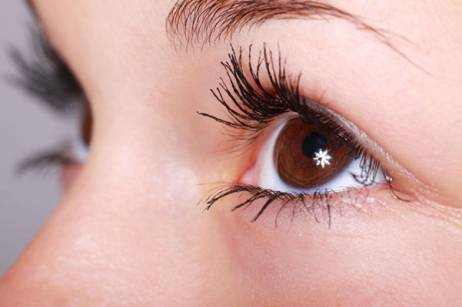Macular degeneration is one of the leading causes of vision loss among people over the age of 50. It’s a condition that can creep up gradually, taking away the ability to see fine details, whether it’s reading a book or recognizing a loved one’s face. Fortunately, we now know more about preventing macular degeneration than ever before. From vitamins and minerals to lifestyle adjustments, there are several approaches backed by solid science that can help preserve your vision. Let’s explore these methods in-depth, with a mix of statistics, real-world examples, and the latest trends in prevention.
Understanding Macular Degeneration
Macular degeneration, specifically age-related macular degeneration (AMD), affects the macula, which is the central part of the retina responsible for sharp, central vision. AMD comes in two forms: dry and wet. Dry AMD is the more common type, accounting for 85-90% of all cases, while wet AMD, though less common, progresses more rapidly and is more severe. As of 2023, 11 million Americans are affected by AMD, and that number is expected to double by 2050 as the population ages.
Vitamins That Play a Key Role in Prevention
The AREDS Formula: Vitamins and Minerals for Eye Health
One of the most talked-about supplements for macular degeneration is the AREDS (Age-Related Eye Disease Study) formula, which was developed through extensive research by the National Eye Institute. The original AREDS study in 2001 and the updated AREDS2 study in 2013 demonstrated that certain combinations of vitamins and minerals can reduce the risk of AMD progression by 25% for those at risk.
The AREDS2 formula includes:
| Vitamin/Nutrient | Daily Amount |
|---|---|
| Vitamin C | 500 mg |
| Vitamin E | 400 IU |
| Zinc (as zinc oxide) | 80 mg |
| Copper (as cupric oxide) | 2 mg |
| Lutein | 10 mg |
| Zeaxanthin | 2 mg |
These nutrients work together to support retinal health, combat oxidative stress, and reduce inflammation—key factors in the development of AMD.
Dr. Samantha Greene, a prominent ophthalmologist, emphasizes, “The AREDS2 formula is not a cure, but it is the gold standard for those at risk. Lutein and zeaxanthin, in particular, act like ‘natural sunglasses’ for the retina, filtering harmful blue light.”
The Science Behind Lutein and Zeaxanthin
Lutein and zeaxanthin are carotenoids found in leafy green vegetables like spinach and kale. Unlike other vitamins, these compounds accumulate in the retina, where they play a protective role by absorbing blue light and neutralizing free radicals. A 2022 meta-analysis found that individuals with higher dietary intake of lutein and zeaxanthin had a 30% lower risk of developing advanced AMD.
While dietary sources are ideal, supplements are often recommended, especially for older adults who may have difficulty absorbing enough lutein and zeaxanthin through diet alone. The average cost of a month’s supply of a quality AREDS2 supplement is $20-$30, a small price to pay compared to the potential loss of vision.
Omega-3 Fatty Acids: What Role Do They Play?
Omega-3 fatty acids, found in fish like salmon, mackerel, and sardines, are another key component in maintaining eye health. Studies have shown that regular consumption of omega-3s is associated with a 20-30% reduced risk of developing AMD. These fatty acids help reduce inflammation, which is a significant factor in the progression of both dry and wet forms of AMD.
A landmark study published in 2021 in the British Journal of Ophthalmology highlighted that people who ate fish twice per week had a markedly lower risk of AMD compared to those who ate fish less frequently. For those who don’t like fish, omega-3 supplements are an option, costing around $15-$25 per month.
Quit Smoking: The Most Impactful Lifestyle Change
It cannot be stressed enough—smoking is the most significant modifiable risk factor for AMD. Smokers are four times more likely to develop AMD compared to non-smokers. Nicotine and other harmful substances in cigarettes contribute to oxidative stress, damage blood vessels in the eyes, and accelerate the degeneration of the retina. If you smoke, quitting is the single most effective action you can take to protect your vision.
Linda Thompson, a former smoker who was diagnosed with early-stage AMD, shares, “I quit smoking the day my ophthalmologist told me about the connection. It was my wake-up call. A year later, my eye health has improved, and I feel like I’m doing everything I can to save my sight.”
Diet and Exercise: The Backbone of Prevention
A healthy diet rich in green leafy vegetables, colorful fruits, and fish is foundational in preventing AMD. A 2020 study found that individuals who adhered to a Mediterranean-style diet, which is high in vegetables, whole grains, and healthy fats, had a 41% lower risk of developing AMD.
Exercise also plays a role. Moderate physical activity has been linked to better eye health outcomes. A 2019 study published in JAMA Ophthalmology found that people who engaged in regular physical activity were 25% less likely to develop AMD. The mechanism is thought to involve improved circulation, which supports the delivery of essential nutrients to the eyes.
Blue Light Protection: Fact or Fiction?
With the rise of digital screens, blue light exposure has become a buzzword in eye health. While the jury is still out on whether blue light from screens directly contributes to AMD, there is evidence that excessive screen time can strain the eyes and disrupt sleep, indirectly affecting overall eye health.
Blue light-blocking glasses have become a popular choice, though their efficacy in preventing AMD remains uncertain. However, reducing screen time and following the 20-20-20 rule (every 20 minutes, look at something 20 feet away for 20 seconds) can help reduce eye strain and maintain comfort.
Our Editorial Team’s Advice for Protecting Your Vision
Macular degeneration is a complex condition with no single cause or cure, but there are many evidence-based methods to reduce your risk. Start by incorporating more leafy greens and fatty fish into your diet, and consider adding an AREDS2 supplement if you are at high risk. Quitting smoking and staying physically active are also crucial steps toward protecting your eyes. Small, consistent actions today can have a significant impact on your eye health tomorrow.
Remember, your eyes are precious. Take proactive steps now to preserve your vision for years to come.



